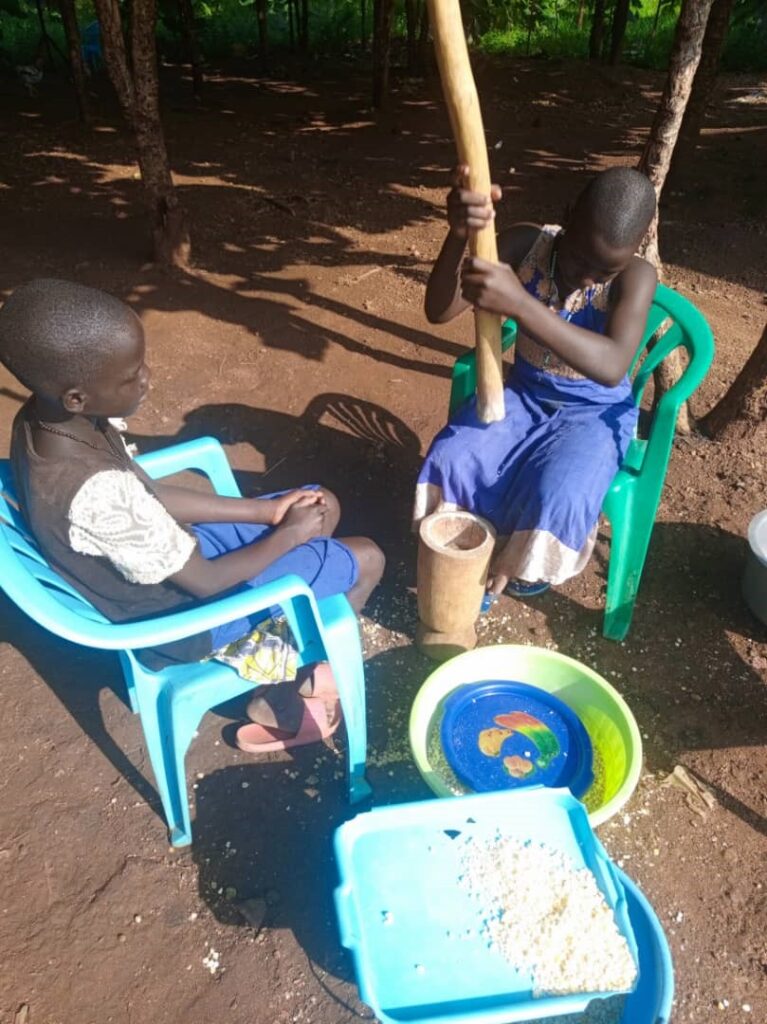Children’s Rights, Judith Wagner
Judith Wagner’s presentation was entitled Child Rights in the US and Around the World. Dr. Wagner noted that Rotary International’s mission statement aligns with the UN Convention on Children’s Rights. Much of her talk was taken from a chapter she authored in a book, “Young Children in the World and Their rights: Thirty Years with the United Nations Convention on the Rights of the Child.” The chapter was about child rights in the US. She quotes: “… Direct and unambiguous references to child rights are nearly invisible and inaudible in American social, political, and educational discourses, though some related concepts, such as equality and inclusion, frequently appear” (p.31). There are things everyone can agree on regarding children’s rights. Every child should have the right to survive and to develop according to his or her own potential. This is in the interest of all societies. Yet rights of children remain a controversial topic in the US.

Comparison and Satisfaction
There have been many studies of countries’ rankings on children’s rights. A conglomeration of studies ranks the US between satisfactory and failing amongst the 196 countries of the world depending on comparison group and criteria being measured. On the realization of Child Rights Index (RCRI) ranks US at 56. Children’s Rights Worldwide ranks US as “Satisfactory” behind Canada, Europe, Australia, and parts of South America


Among well developed countries, the US has the highest rates of child poverty. Child poverty is 20.9% v. 11.9 average amongst well developed countries. Six million US children live in deep poverty. Infant mortality among indigenous people is 40% higher than national average. The minimum age for legal marriage is considered an indicator of wellbeing as well as educational and social outcomes for girls. More than 200,000 child marriages took place in the US between 2000 and 2015 involving girls as young as 12. California has no minimum age requirement for marriage if the parent and court give consent. The Realization of Child Rights Index (RCRI) rates the US as “satisfactory” but cites considerable problems with healthcare, child abuse, juvenile law system, etc. And though the US receives an “average” ranking when compared to all countries, it receives failing grades when compared to other economically developed countries. Children in the US suffer great disparities in wealth, access to food and good education. Laws in the United States are not uniform and there is no national law governing the rights of children. Children’s wellbeing can differ greatly between states and even from city to city. Recently, several states have relaxed child labor laws. Arkansas Governor signed a bill rolling back protections. In New York, the labor department found 31 children cleaning meat packing plants.
United States and the UN Convention on the Rights of the Child
Though the United States played a key role in drafting the UN Convention on the Rights of the Child, the US Senate has yet to ratify the treaty. The US is the only developed country that has not become signatory. At the time, President Obama chose to focus on child health and backed away from pushing for ratification of the CRC. Socio-economic disparities largely track race and ethnic groups so that minority children are much more severely impacted. These disparities keep children from reaching their full potential. The reality does not meet our aspirations. The minimum that we can do is actually enforce the laws we have on the books. This is not happening consistently. There is a lot of misinformation and fear around the CRC and there are political reasons for why it has not passed. Judith described how her small role in the development of the United Nations Convention on the Rights of the Child in 1989 came about. She was invited in a phone call to be a US representative for the World Conference on Children’s Rights. She thinks they may have meant to call someone else since she was just a young professor. Passing a room, a woman came out of a room and asked, in a thick accent, whether she spoke English. When she said yes, she was taken into the room to help write a provision on children needing to play. Some of that ended up in the CRC. We all learned somethings today!
